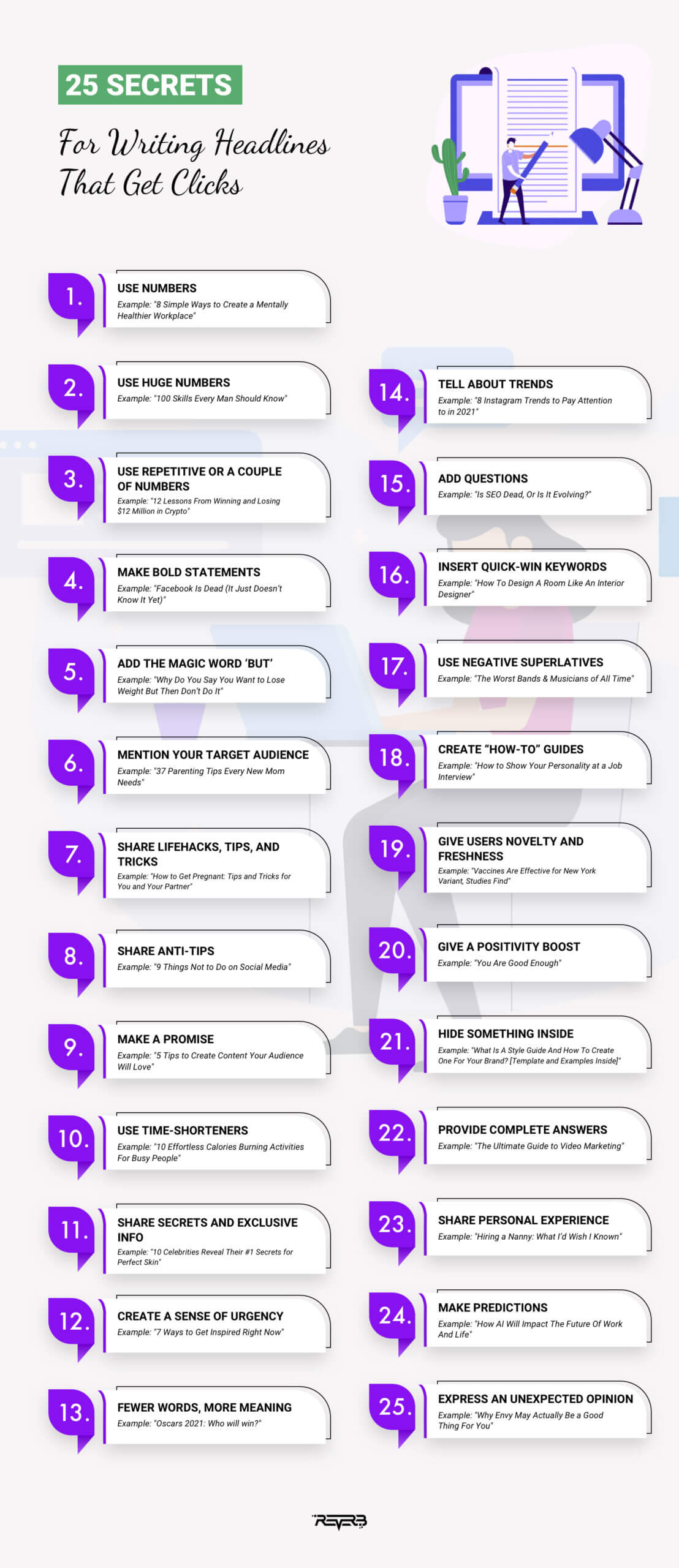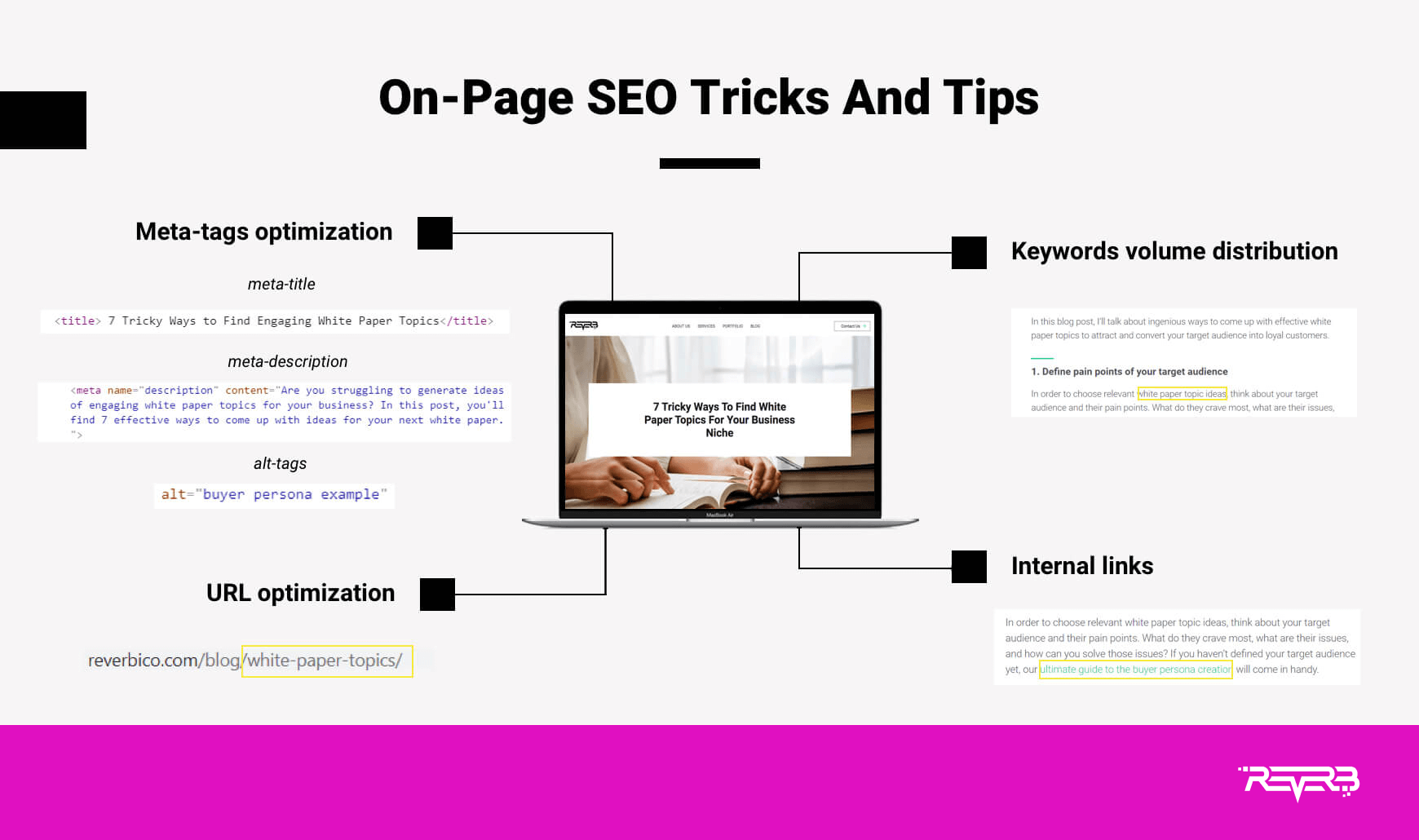Did you know that in 2022, organic clicks generated 45.1 percent of search results?
Part of what signals to search engines like Google that your website is worth ranking well is your on-page SEO strategies or those tactics relating to your website/pages (as opposed to off-page SEO, which is largely about backlinks).
With the SEO rules consistently changing (Google did nine algorithm changes in 2023 alone), keeping up can take a lot of your time and money. Rather than pouring both into your on-page SEO strategies, why not allow AI to bear the brunt of it?
Let’s explore some SEO tasks AI excels at that can elevate your rank while you focus on important tasks like crafting copy that connects and building stronger customer relationships.
Essential SEO Tasks Streamlined By AI For Improved Efficiency
1. Keyword research
Your website ranking largely depends on the keywords you target. Some keywords are difficult to use, meaning they have a lot of competition and an oversaturated market. Others are low-difficulty, and targeting these won’t help you rank much because few people search for them.
You need keyword difficulty that’s somewhere in the middle, ideally between 30 and 50 percent. AI tools can take the guesswork out of keyword research, identifying short- and long-tail keywords that will make a major difference in how your website ranks.
2. Title tag writing
Your title tag, which appears at the top of your web pages and acts as a page title, is an opportunity to insert keywords and grab consumer attention. For that reason, marketers can agonize over the title tag, writing and rewriting it again and again.
There’s no need for AI to take care of crafting title tags that fit within the recommended character limits (50 to 60 characters) and add formatting. Moreso, AI can craft the kinds of title tags your brand wants, as they will be catchy and convincing.
Your title pages will grab more attention, keeping people on the page longer to increase your chances of conversion.

3. Internal linking
On-page SEO is reliant on internal linking, which helps Google crawlers understand your site layout better. Further, internal links improve link equity, signal your most important keywords to Google, and benefit the user experience.
AI internal linking tools utilize machine learning to review the content on your website and recommend relevant, targeted links. You’ll save so much time searching for that perfect internal link when AI can do it for you.
4. Writing meta descriptions
Meta descriptions are short-form explainers of website or blog content that shouldn’t surpass 150 characters. It’s sometimes tough to write succinctly and boil down the biggest points of your content with such a small character limit.
There’s no need to struggle. PostCheetah, an AI SEO tool, can produce optimized meta descriptions that are ready to rank. The descriptions will include your brand name and the targeted keywords, using both naturally.
The best part of using AI for writing meta descriptions is that you can request rewrites as many times as you need until you’re satisfied with the quality of your snippet.
5. URL slug readiness
Your on-page SEO strategy isn’t ready to deploy until you amend your URL slugs. These addresses to specific product/service collections and web pages on your site are usually generated automatically.
However, that doesn’t always mean your slug is SEO-friendly. Best practices include using lowercase letters the whole way through, skipping dates, inserting target keywords, watching URL length, and adding hyphens between words to make the slug more readable.
The URL slug should also match your page headline as closely as possible.
AI can improve the quality of your URL slugs across your website, ensuring they meet the above criteria. As your slugs get older and you wish to update them (another SEO best practice), you can again rely on an AI tool to take care of it.

6. Image optimization
The quality of the images on your website plays a role in your rank, which is why image optimization is a paramount task on your on-page SEO checklist.
This is another area where an AI image editing tool can massively assist. For example, AI can reduce image file sizes and increase image quality using machine learning. Of course, everyone is well aware of AI’s image-generating potential.
While the images it produces aren’t always perfect, they’re improving all the time. You can ensure you have original images on your website to further cement your brand identity.
7. Website performance check
Have you ever received an SEO audit? They’re critical in determining if your website is performing up to par, but they’re also incredibly expensive, costing $650 to $14,000 for one audit.
If you’re a small business or an SMB with multiple websites, you can see how SEO audits might be outside your price range.
Fortunately, you can use AI tools as your SEO auditor. AI can review major elements of your site performance, including loading speed, canonical URLs, content quality, heading tags, meta descriptions, mobile optimization, site architecture, keywords targeted, image quality and optimization, and broken links.
Once you see which areas you can stand to improve, you can further rely on AI to achieve the results. That makes a good AI tool a cost-effective way to improve your SEO.
Conclusion
SEO influences where your website ranks on the internet. Without it, your marketing and advertising campaigns won’t have the same degree of reach, as you’ll practically be invisible online. This can hamper your business goals and risk your company’s financial stability.
Fortunately, we live in an age where SEO AI tools exist. You no longer have to dedicate quite so much time and mental fortitude to SEO when AI can take care of the toughest parts for you, from writing meta descriptions and URL slugs to optimizing images, recommending internal links, and performing keyword research.
Better yet, you can trust AI to audit your website’s SEO, amending trouble areas to elevate your rank further!






